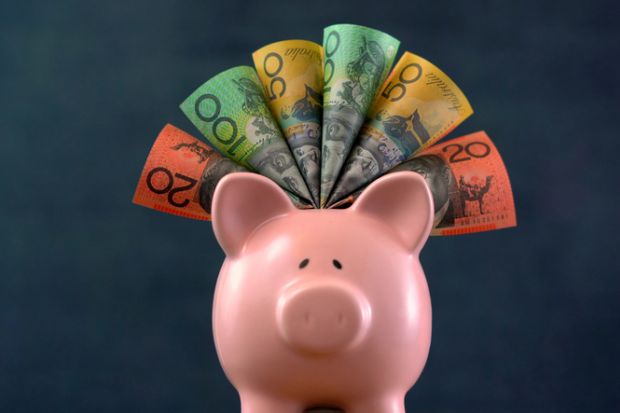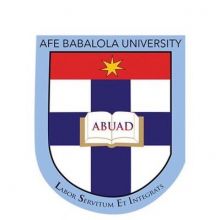
How much does it cost to study in Australia? If you are interested in studying in Australia, one of the most important things to consider is how much everything is going to cost. This essential guide breaks down the cost of every aspect of university life to ensure that you have everything covered.
Note that prices and exchange rates are correct at the time of publication and may vary from those shown here.
Tuition fees
Australia is one of the most popular destinations for university study but, like the UK and the US, it is also one of the most expensive.
However, regions differ greatly and it is worth exploring all avenues before ruling out the possibility of studying Down Under. For example, international students can pay their fees well in advance of the term starting, which helps with budgeting during the school term.
International undergraduate students can expect to pay anything between $20,000 and $45,000 (all figures noted are in Australian dollars), or £11,140.35 to £25,065.78 Undergraduate degrees last between three and four years in Australia.
A master’s degree costs $22,000 – 50,000 (£12,254.38-£27850.87).
Veterinary and medical degrees cost considerably more than this. For example, at Australian National University, a BA in an arts subject cost $38,400 (£21,396.23) per year and a BSc in medical science was about $51,360 (£28,617.46) per year.
Fees in Australia are generally calculated per unit, rather than per year. Most students will be studying a combination of units from different bands and each unit will fall into a different band and costing – so all students will be paying varying amounts each year.
Like many other countries, domestic students will pay far less to study in Australia than international students. The contributions demanded from domestic students are capped and subsidised by the government, and many are eligible for the Higher Education Loan Program (HELP).
Accommodation costs
Accommodation costs vary, depending on the type and region: the more rural regions, in the western and northern Australian states, will be much cheaper, whereas more urban areas, for example around Sydney, will cost more, particularly if you are downtown.
On-campus accommodation is typically $440 – 1,100 per month (£245.17 - 612.91) a homestay is $450 – 1,200 per month (£250.74 - £668.63) and shared rental accommodation is $380 – 850 per month (£211.73 - £473.61).
Other essential student costs
Rented accommodation may have some of the utility costs included. If they are not, the average gas and electricity bill is $50-100 (£27.86-55.72) a month, internet is $70-120 (£39-66.86) a month and the equivalent of a council tax bill (water/sewerage/waste management) is $50 (£27.86) a month split between tenants.
In order to obtain a visa for studying in Australia, applicants will need to prove they have $21,041 (£11,723.91) per year for living costs alone, to cover one to two years. Student visas can cost up to $620 (£345.46). Always check the terms of a student visa, because certain types prohibit students from working while they study.
It is compulsory to have Overseas Student Health Cover (OSHC), which costs the average undergraduate student $438 (£244) for three years. However, this will vary across providers and based on the cover that students take out.
There is a possibility that students will be charged a Student Services and Amenities Fee (SSAF) on top of their tuition fees – a non-academic fee that funds services and support programmes that can be used by all students. This varies by university and region, but is typically $308 (£171.62) per academic year.
You also need to prove that you have booked a return airfare to your home country at the end of the period of study.
A budget for books and academic supplies is estimated at $500-1,000 (£278.60 - 557.19) per year.
Some universities provide a private transport system free of charge for students to get around and there are many discount programmes depending on the state (Queensland, South Australia and Melbourne all provide subsidised transport for students).
Without a discount, a weekly public transport pass costs $30-60 (£16.72- 33.43) and a one-way ticket is $4 (£2.23). Bicycles are also a popular mode of transport in the urban university areas, in Melbourne in particular. A litre of petrol, on average, costs $1.19 (66p).
Student experience in Australia
Best universities in Australia
A guide for international students choosing a university in Australia
Graduate employability: top universities in Australia ranked by employers
9 things every international student should know about Australia
A guide to student bank accounts in Australia
Scholarships for international students in Australia and New Zealand
International perspective: a Zambian student in Australia
A day in the life of a student in Australia
Lifestyle
The average weekly grocery shop costs $80 (£44.58) and eating a meal in an average restaurant is $18 (£10). The average cinema ticket costs $14 (£7.80) and a Big Mac is $4.30/£2.40.
A pint of beer costs $8 (£4.46) and a glass of wine is $9 (£5). The average gym membership is $65 (£36.22) per month. Nights out vary, depending on the territory but can be between $50-60 (£27.86 - $33.43).
What financial support is available
There are scholarships and grants available for international students, but they are limited. They have tended to be offered to postgraduate students rather than undergraduate students – although this imbalance is slowly shifting. Most are based on academic merit rather than financial need.
Most scholarships are offered directly by the universities themselves, and these will be listed on their websites.
There are well-established scholarship programmes available for international students such as the the Australia Awards, which is funded by the Australian government and covers full tuition fees, travel expenses and some living costs.
An ISIC card is well worth applying for as a student, as living costs and entertainment options are expensive in Australia. The card, which is internationally recognised proof of your student status, costs $30 (£16.72) and offers 20 per cent off at restaurants and cafes, cinema tickets from $11.50, 5 per cent off groceries, fuel and alcohol and 40 per cent off international airfares.
Read more in this series
The cost of studying at a university in the United States
The cost of studying at a university in the UK
The cost of studying at a university in Germany
The cost of studying at a university in Canada
The cost of studying at a university in France
The cost of studying at a university in the Netherlands
The cost of studying at a university in New Zealand
The cost of studying at a university in China
The cost of studying at a university in Japan
The cost of studying at a university in Brazil























Have your say